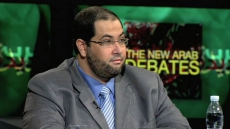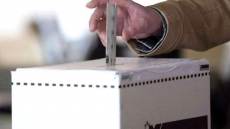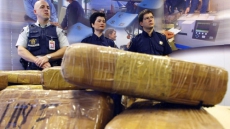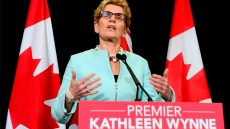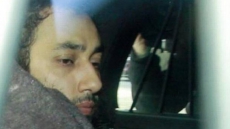OTTAWA — Is Canadian politics going to the dogs?
Politicians seem to think so, judging by the sudden zeal with which they're accusing each other of practising "dog-whistle politics."
The term, widely used in the United States, the United Kingdom and Australia, popped up here last week amid the furor over Prime Minister Stephen Harper's insistence that it's "offensive" for Muslim women to wear the face-covering niqab while taking the oath of citizenship.
"Fear is dangerous thing," Liberal Leader Justin Trudeau opined in a speech in which he accused Harper of deliberately fuelling prejudice against Muslims as part of his tough-on-terrorism agenda.
"Once stoked, whether by a judge from the bench or a prime minister with a dog whistle, there is no way to predict where it will end."
Defence Minister Jason Kenney shot back via Twitter, calling Trudeau's remarks "particularly odious given that his Ontario Liberal friends ran a dog- whistle campaign against Muslim schools in 2007" — an obscure reference to an ill-fated provincial Conservative campaign promise to extend public funding to schools of all religious faiths.

Dog whistle is a term that hasn't been used much in Canadian politics until now but it is bound to be heard more frequently as politicians count down to the October federal election and ratchet up their rhetoric.
WHAT IS DOG-WHISTLE POLITICS?
Like a real dog whistle which produces sound at a high frequency that can be heard by canines but not by humans, dog-whistle politics refers to the use of code words that go unheard or unremarked by most people but which convey a particular — usually nasty, racially tinged — message to a target audience.
WHERE DID IT COME FROM?
The term "dog-whistle politics" reportedly originated in Australia in the mid-1990s when Prime Minister John Howard — incidentally, one of Harper's political mentors — was accused of using words like "un-Australian" and "illegals" in a veiled pitch for support from racist, white Australians.
Howard's campaign manager was Lynton Crosby, often described as the "master of dog-whistle politics." Crosby introduced Britain to his brand of politics in 2005, creating election messaging for the Conservative party that focused on hot button issues like immigration and crime under the slogan, "Are you thinking what we're thinking?" Among the messages: "It's not racist to impose limits on immigration."
Crosby went on to become U.K. Prime Minister David Cameron's chief political strategist.

HOW IS IT USED?
Likely no country has employed dog-whistle politics longer or with more gusto than the United States. Indeed, in a book published last year — Dog Whistle Politics: How Coded Racial Appeals Have Reinvented Racism and Wrecked the Middle Class — law professor Ian Haney Lopez traced the practice back to the 1960s, long before the term was coined in Australia.
It started, he wrote, with Barry Goldwater's failed presidential bid in 1964, when the Republican ran on a platform of "states rights" — an innocuous sounding phrase, which in the context of the racial tensions at the time, was meant to be read as support for states resisting federal orders to integrate their schools.
It continued, according to Haney Lopez, in Ronald Reagan's 1976 presidential campaign, when the former actor told stories about "Cadillac-driving 'welfare queens' and 'strapping young bucks' buying T-bone steaks with food stamps" — veiled insinuations that lazy blacks were abusing social welfare programs.
More recently, the use of President Barack Obama's middle name — Hussein — and demands to see his birth certificate have been deplored as dog whistles aimed at planting the notion that he is not really an American but a foreign-born Muslim and possible terrorist sympathizer.
